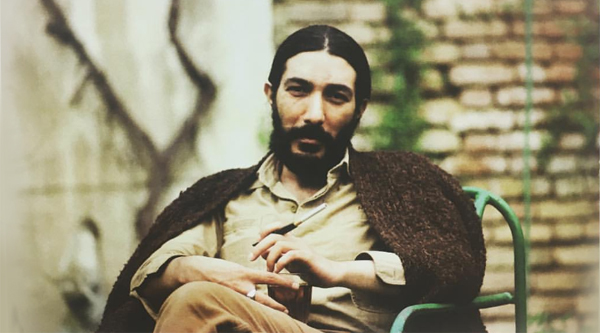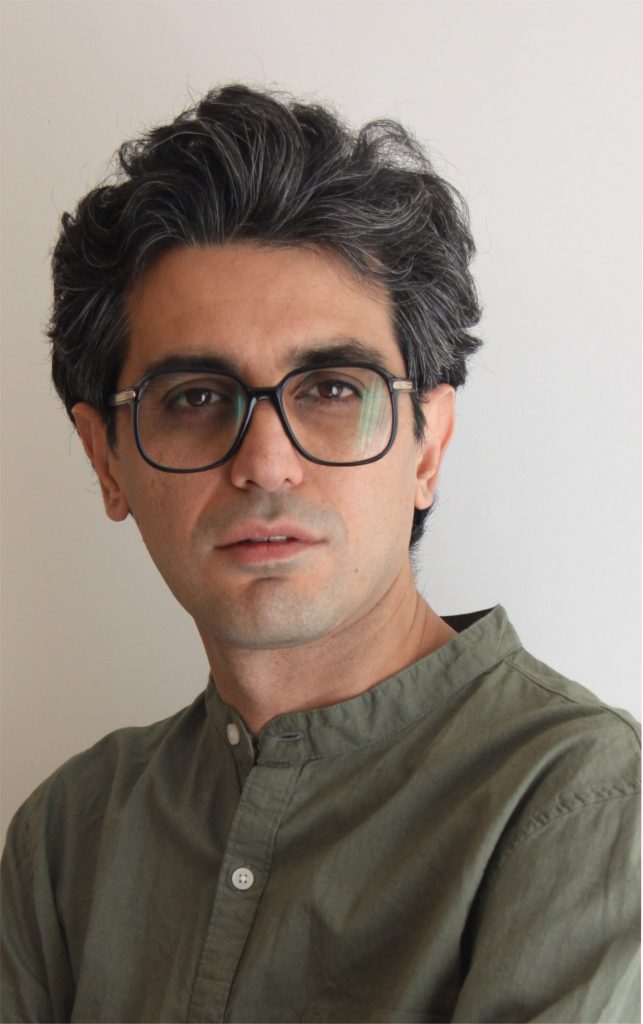
Bijan Elahi (July 7, 1945 – Dec 1, 2010) was a modernist poet and a prolific translator of T.S. Eliot, Arthur Rimbaud, Henri Michaux, Friedrich Hölderlin, and many other major poets. He was both the founder and the most important representative of a poetry movement called Other Poetry (she’re digar) [شعر دیگر]. Elahi’s style is distinguished by its surrealistic imagination, its complex metaphors, and unusual collocations of words. Elahi developed an idiosyncratic and erudite form of poetic expression that included elements of ancient Iranian mythology, Persian Sufism, and French Surrealism. Reluctant to publish book-length collections of his work, Elahi refused to enter the public spotlight while he was alive and led a reclusive existence. His posthumously published poetry and translations have exerted a major influence on the younger generation of Persian poets.
Tiger
You, imprisoned by this simile!
Jump! Boy! Rip!
Bars, my dear, are verses.
They soar when you flee.
For an instant, you turn pale
and sober, in papery air.
Alone –
Nothing will you gain.
Nothing will you lose.
Only a streak of blood,
only a way
to avoid experience.
Red but
from the lovers’ mistakes.
You don’t even gain.
You don’t even lose.
The white butterfly
slowly sinks
into the wine of your age.
And Who?
And who saw the year
was born with so many violets?
when thirst
was sweet.
You won’t keep me away from your memory.
I wasted my youth – lovely skin!
Meanwhile, another youth
is grafted onto you.
In this place, several violets were enough
to cover the well’s mouth.
The Crow’s Sonnet
Thank God! We got rid of the battle.
–Rumi
It is neither strange
nor fun
when they knock on the door.
You see it’s a crow that says:
Damn this forgetfulness.
Always dig and hide, always search and find one.
The worm-eaten one, shit, damn—
damn this forgetfulness.
Damn this forgetfulness.
This ridiculous truth, this spiritless song
will not touch me
in any way at all.
What You Have Read So Far
I said: I have received a letter. It ordered me,
at such and such a date and such and such a place,
to join another group
and move to city B.
The letter’s author was unknown.
I checked an atlas, and could not find city B.
Two days later, my friend, Raha
passed away tragically.
He had received the same letter just before he died
he had said the night before
he had dreamed of a bird,
resembling a hoopoe.
The next day this bird
entered my dream.
I therefore had to join the same group at the stated place.
I said: We were roughly thirty people.
We began our journey.
Along the way
an old man named Allahyar joined us.
We will see what a major role he has.
So a few days later, another group who said—
passed that valley. They assumed we were their group
but were supposed to join a different group.
Were we were nearing
the city B
which was nowhere
on the map?
We have reached here.
Anxious of the gradual increase, Allahyar says:
Something must be done, and quickly.
What can be done with this crowd of Laylis
and this herd of men?
And here the story begins …
About the Translators

Kayvan Tahmasebian is a poet, translator, literary critic, and the author of Isfahan’s Mold (Sadeqia dar Bayat Esfahan, 2016). His poetry has appeared in Notre Dame Review, the Hawai’i Review, Salt Hill, and Lunch Ticket, where it was a finalist for The Gabo Prize for Literature in Translation & Multilingual Texts in 2017. With Rebecca Ruth Gould, he is co-translator of High Tide of the Eyes: Poems by Bijan Elahi (The Operating System, 2019).

Rebecca Ruth Gould is the author of the poetry collection Cityscapes (Alien Buddha Press, 2019) and Writers and Rebels (Yale University Press, 2016). She translates from Persian, Russian, and Georgian, and has translated books such as After Tomorrow the Days Disappear: Ghazals and Other Poems of Hasan Sijzi of Delhi (Northwestern University Press, 2016) and The Death of Bagrat Zakharych and other Stories by Vazha-Pshavela (Paper & Ink, 2019).

Leave a Reply